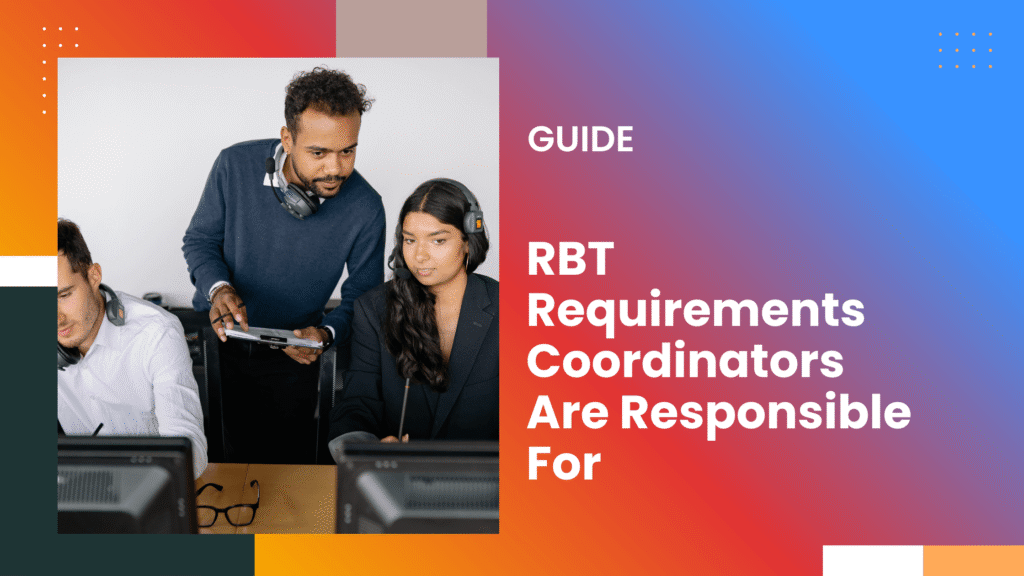RBT Requirements Coordinators Are Responsible For?

An RBT Requirements Coordinator, typically a BCBA, oversees RBT supervision compliance, maintains BACB documentation, coordinates with supervisors, and ensures audit readiness. This role centralizes supervision oversight to help Registered Behavior Technicians meet all BACB certification and supervision requirements effectively.
Let’s say you are part of an ABA company with a bunch of RBTs and multiple BCBAs; someone has to make sure everyone’s following the rules.
That’s where the RBT Requirements Coordinator steps in.
What an RBT Requirements Coordinator Does
A RBT Coordinator does a lot of things, and here are a few of them:
- Tracks monthly supervision for every RBT under their system
- Makes sure each RBT gets 5% of their hours supervised (no less)
- Checks that supervisors are showing up and doing their job
- Keeps supervision records organized with correct signatures, dates, and percentages
- Handles audit requests from the BACB if they ever come knocking
- Updates the official list of RBTs tied to their supervision structure
- May also supervise directly if they’re qualified and listed properly
In simple terms, they are the ones who tie everything together behind the scenes, and without them, things fall apart fast.
Who Can Be a Requirements Coordinator?
Only a BCBA (or BCBA‑D) can serve as an RBT Requirements Coordinator. An RBT cannot assume that role.
I have personally seen some places that allow BCaBAs, but that’s being phased out.
The BACB is moving toward BCBAs-only for coordination moving forward.
And it’s not automatic. The person also has to:
- Complete the 8-hour supervision training
- Be officially listed in the BACB account as the Coordinator
- Oversee supervision in a way that meets the current RBT standards
It’s more than a title, and it comes with real responsibility.
What Are They Not?
Just because they are Coordinators doesn’t mean they replace your regular supervisor.
You’ll still get clinical feedback and observation from a BCBA or BCaBA.
But the Coordinator’s job is to keep the structure tight and in line with BACB rules.
What If They Don’t Do Their Job?
Let’s say an RBT gets audited, and the supervision records are off, the Coordinator is the one held accountable.
Here’s what can happen:
- BACB flags the RBT’s certification
- The coordinator may face ethics violations
- The agency could lose its good standing
- Client safety, billing, and legal compliance are all at risk
This is exactly why the Coordinator role exists in the first place, which is to prevent this exact mess.
So, if you’re part of a clinic or company with multiple RBTs, that means someone has to own the supervision system.
The RBT Requirements Coordinator fills that role, and by the way, they are not just “keeping track” but rather they’re holding the whole structure together.






